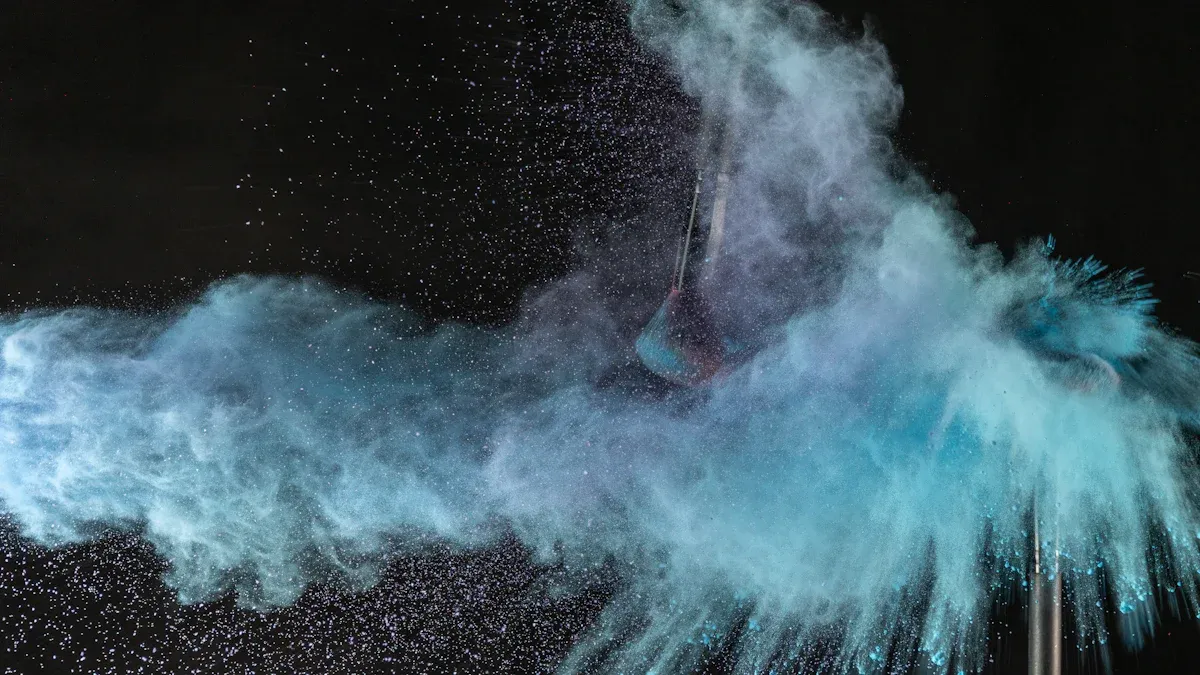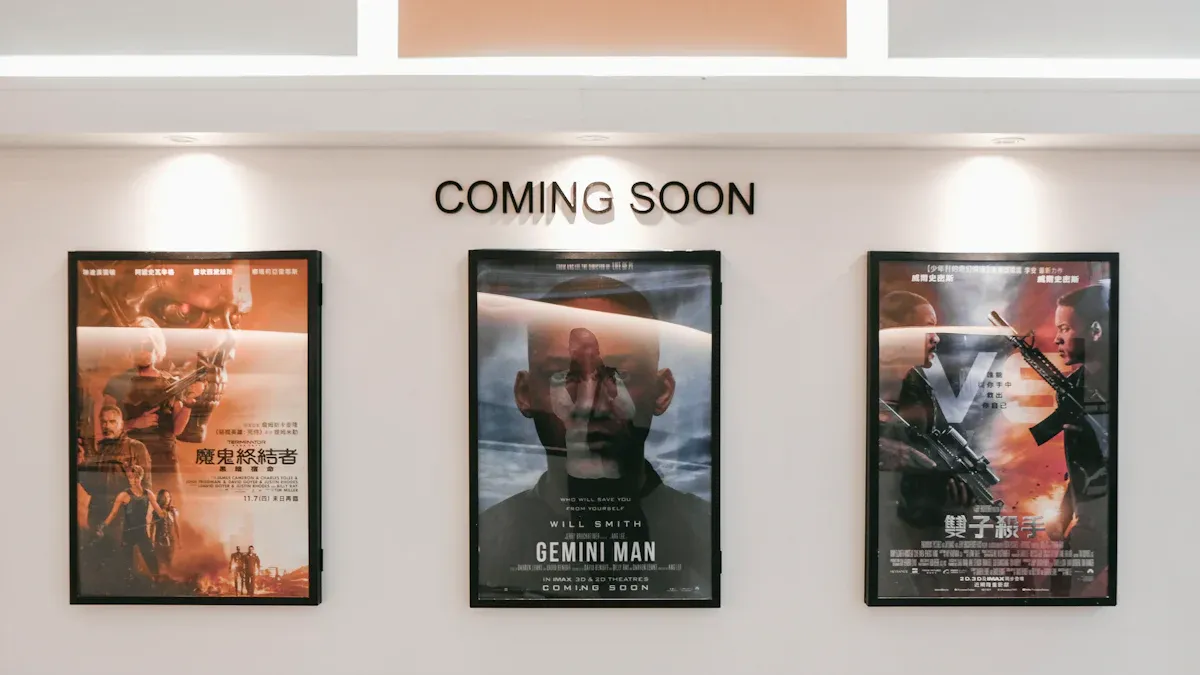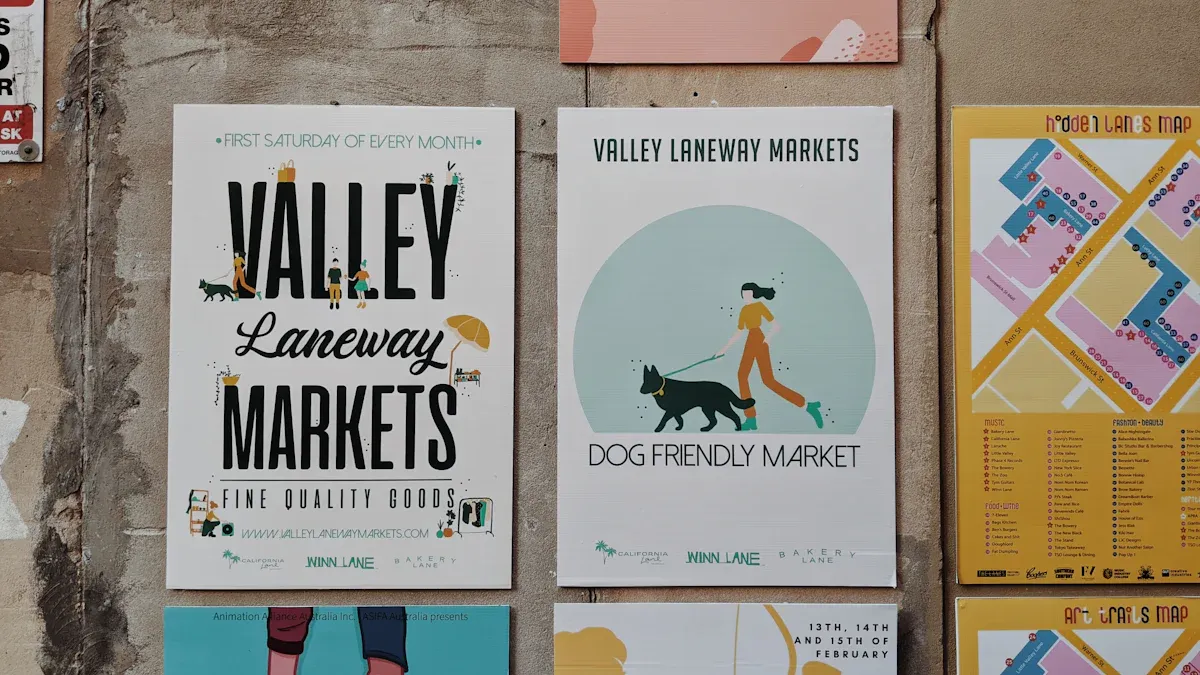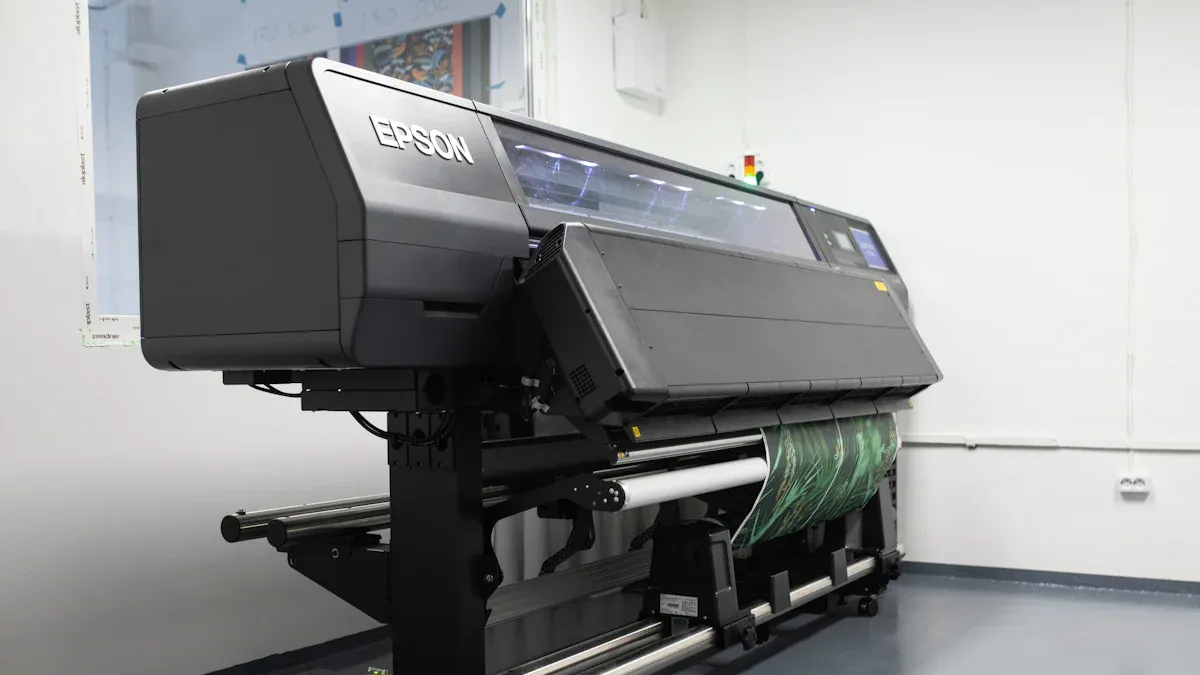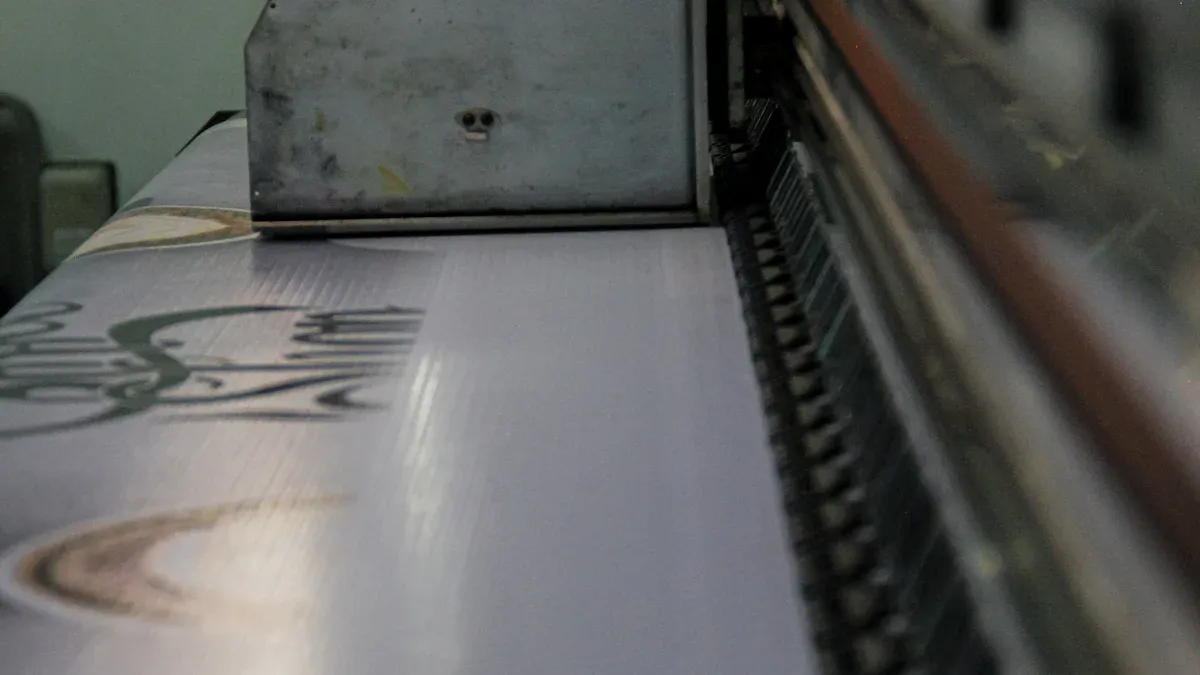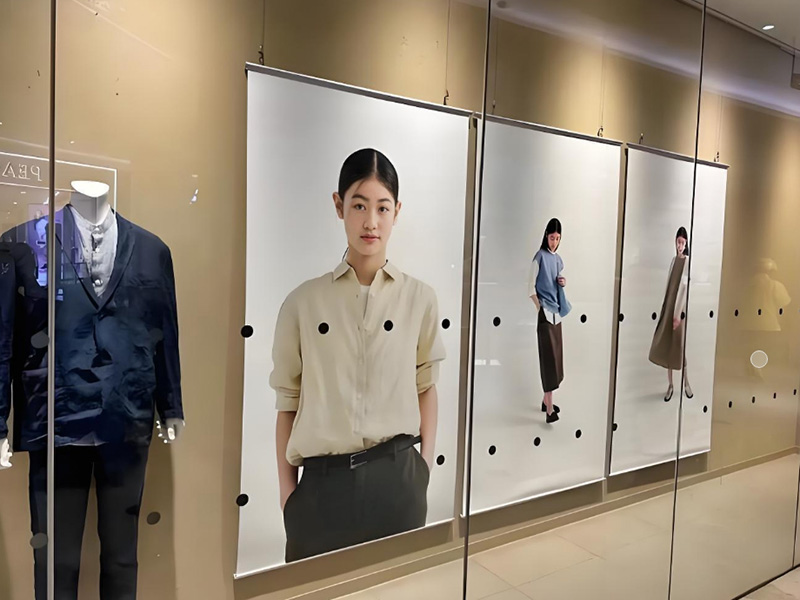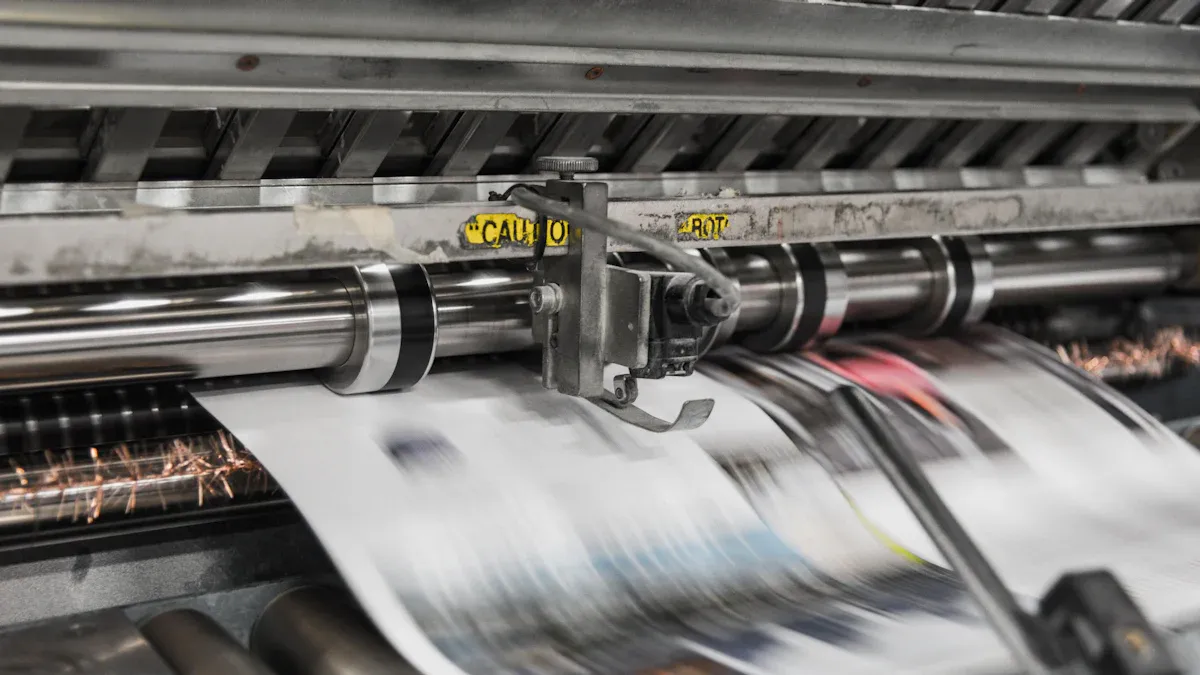
Understanding cheap vs premium large format printing is important. Cheap printing is affordable but may lack quality. Premium printing costs more but offers better results. Each type works for different needs, like short-term banners or durable displays. Knowing how price and durability match your goals saves money and time. Choosing the right printing ensures your project looks good without wasting money.
Key Takeaways
Cheap large format printing costs less and works for short-term needs.
Premium large format printing uses better materials and lasts longer.
Think about your project’s goal and money when picking printing.
Good designs in cheap printing save materials and cut costs.
Premium printing can make your brand look better to customers.
What Is Cheap Large Format Printing?
Characteristics of Cheap Printing
Cheap large format printing is all about saving money. It uses cheaper materials and simple methods to make prints at lower prices. The quality may not be as good as premium printing, but it works for short-term or easy projects.
A big advantage is lower costs per print when making many copies. This happens because producing more prints reduces the overall expense. Smart layouts also cut down on wasted materials, making the process faster and cheaper. Quick production times help businesses meet deadlines without spending too much.
Evidence | Description |
|---|---|
Lower cost per unit with more prints | Printing more lowers costs due to economies of scale. |
Less material waste with smart layouts | Better layouts reduce waste and save money. |
Economies of scale with fast production | Quick printing allows for more copies at lower prices. |
Cheap printing focuses on being affordable, not long-lasting. It’s great for projects like temporary signs or short-term promotions.
Common Use Cases for Cheap Printing
Cheap printing helps industries that need fast and low-cost solutions. For example, packaging companies save money by using smart layouts. AMBA MULTIPRINT cut costs by nearly 50% with better sheet sizes and nesting.
Custom designs are another use. Printi makes unique products quickly and cheaply, helping businesses stay within budget.
Automation is also important. SignInk uses cheap printing with software to speed up production. Architects and builders use large format plotters for blueprints, like Kelley Create does. These prints are needed for planning but don’t need to last long.
Company | Industry | Use Case Description |
|---|---|---|
AMBA MULTIPRINT | Packaging | Saved almost 50% by using better sheet sizes and nesting techniques. |
Printi | Custom Products | Makes personalized items quickly and affordably. |
SignInk | Automation | Uses software to speed up printing for imposition products. |
Kelley Create | Architecture | Uses large format plotters for blueprints needed in construction and planning. |
Cheap printing is best for projects that need to be quick and affordable. It’s perfect for temporary signs, event displays, and test designs.
What Makes Premium Large Format Printing Special?
Features of Premium Printing
Premium printing is known for its great quality and strength. It uses top materials like canvas, vinyl, or fabric. These materials make colors bright and prints last longer. Special inks like UV-curable, latex, or eco-solvent help prints stay colorful and resist fading.
To get the best results, conditions must be carefully controlled. The right temperature keeps ink smooth, and proper humidity stops smudges. Skilled workers use advanced tools to match colors perfectly. This care ensures prints look amazing and meet high standards.
Premium printing is also built to last. Materials often block UV rays and resist water, making them good for outdoor use. Whether it’s a trade show banner or a building wrap, premium printing keeps your project looking great for a long time.
Best Uses for Premium Printing
Premium printing is perfect when quality and durability matter most. In advertising, it makes bold banners, store signs, and building wraps. These prints help brands stand out and attract customers.
The packaging industry also uses premium printing. It creates high-quality boxes, flexible packages, and labels that look great. As demand for better packaging grows, premium printing becomes even more important.
In textiles, premium printing decorates fabrics digitally. It’s used for custom clothing, home décor, and trade show items. Materials like fabric and vinyl make it easy to create unique designs.
Material Type | Benefits |
|---|---|
Stands up to weather for outdoor signs | |
Fabric | Great for trade shows or home decorations |
Paper | Works well for indoor posters or photos |
Choosing premium printing gives your projects a professional look and helps them last a long time.
Cheap vs Premium Large Format Printing: Key Differences
Quality and Durability
The quality and durability of cheap and premium printing are very different. Cheap printing uses thin materials like 80gsm recycled paper. These papers tear easily and soak up water fast, so they don’t last long. They’re not good for outdoor signs or long-term use. Premium printing, however, uses thicker materials like 275gsm photo paper. These materials are strong, resist water, and don’t tear easily. They keep their bright colors and last much longer.
Paper Type | Weight (gsm) | Rip Strength (g) | Water Absorption (drops) | Durability Description |
|---|---|---|---|---|
80gsm Recycled Copier Paper | 80 | 400 | 4 (30 seconds) | Weak, absorbs water quickly, not suitable for photos, used for drafts and memos. |
160gsm Matte Premium White Paper | 160 | 800 | 6 (50 seconds) | Stronger than copier paper, good for photos and text, but less durable in water. |
275gsm Photo Paper Plus Glossy II | 275 | 800 | 1 (10 seconds) | Very strong, excellent for photos, highly durable in wet environments, difficult to fold. |
Premium printing also uses special inks like UV-curable or latex inks. These inks make prints last longer and stay colorful. This makes premium printing great for outdoor signs or trade shows. Cheap printing is better for short-term projects like posters or banners for events.
Cost and Value
The price difference between cheap and premium printing is big. Cheap printing uses simple materials and fast methods to save money. It’s a good choice for projects with small budgets or when you need many copies. For example, if you need hundreds of flyers for a one-day event, cheap printing is affordable and works well.
Premium printing costs more but gives better value for important projects. It’s worth the extra money for things like store banners or trade show displays. These prints look professional and last longer. Spending more on premium printing can help your project stand out and leave a good impression.
Environmental Impact
The environmental effects of cheap and premium printing depend on the materials used. Cheap printing often uses recycled paper, which helps save trees. But these papers don’t last long, so they may create more waste over time. Premium printing uses stronger materials but often includes eco-friendly options like biodegradable inks and recyclable paper.
When compared to digital marketing, printing has some eco-friendly benefits:
Energy Use: Printing uses less energy than keeping digital devices running.
Waste: Printing creates recyclable waste, while digital devices add to e-waste.
Resources: Printing uses renewable materials, but digital marketing needs internet infrastructure.
Carbon Footprint: Digital marketing creates more emissions from data and device production.
Aspect | Paper Impact | Digital Impact |
|---|---|---|
CO2e Emissions | 860 MTonnes (2.7% of global emissions) | |
Energy Use | Higher during manufacturing and disposal | Dominated by electricity during use |
Resource Consumption | Requires trees and chemicals | Requires electronic components |
Waste | Can be recycled | E-waste poses significant hazards |
Threshold for Eco-Friendliness | 5000 pages of paper for e-readers | N/A |
Choosing the right printing type helps balance cost, quality, and the environment. Cheap printing is good for short-term needs. Premium printing is better for long-lasting projects and eco-friendly options.
When to Choose Cheap or Premium Large Format Printing
When Cheap Printing Is the Right Choice
Cheap printing is great for quick and low-cost projects. If you’re hosting a one-day event or advertising a short sale, it works well. These prints are perfect for temporary signs, banners, or posters that won’t face bad weather.
It’s also helpful for making many copies. If you need hundreds of flyers or blueprints, the lower price per print saves money. Simple designs and smaller layouts use less material, cutting costs even more.
Tip: Use cheap printing if your project doesn’t need strong materials or bright colors. It’s a budget-friendly way to get the job done.
When Premium Printing Is the Better Option
Premium printing is best when quality and strength are important. For trade shows, outdoor signs, or fancy product packaging, it gives a polished look. These prints use materials like vinyl or fabric that last longer and resist damage.
Premium printers create sharp details and bright colors that stand out. They also use ink efficiently, which can save money over time. While the upfront cost is higher, the results are worth it for important projects.
Note: Pick premium printing for projects that need to look great or last a long time. It’s a smart choice for durability and style.
Key Factors to Consider When Deciding
Think about your project’s needs and budget when choosing. Ask yourself:
What’s the purpose of the print? Cheap printing works for short-term signs or banners. Premium printing is better for lasting displays or packaging.
How much material is needed? Simple layouts use less material, making cheap printing cheaper. Premium printing uses stronger materials but costs more.
What quality do you want? Premium printing gives sharp details and bright colors. Cheap printing focuses on saving money.
What’s the long-term cost? Cheap printers may use more ink, costing more later. Premium printers cost more upfront but save money over time.
Tip: Decide what matters most. If you need quality and durability, go with premium printing. For short-term or bulk projects, cheap printing is a good option.
Cheap and premium large format printing are used for different needs. Cheap printing is less expensive and faster, great for short-term use. Premium printing is stronger and looks better, ideal for lasting displays or branding.
Think about your project’s purpose to decide. For temporary signs or many copies, cheap printing is better. For outdoor banners or eye-catching packaging, premium printing is the best choice.
Tip: Ask an expert to help pick the right materials and methods. Their advice will make sure your project looks great and works well.
FAQ
What is the main difference between cheap and premium large format printing?
Cheap printing is fast and uses simple materials to save money. Premium printing uses better materials and methods for higher quality. Pick one based on your project’s needs and budget.
Can cheap printing still look professional?
Yes, cheap printing can look good for basic designs or short-term use. But it might not have the bright colors or sharp details of premium printing.
Is premium printing worth the extra cost?
Premium printing is great for projects that need to last or look amazing. It’s a good choice for important work because it stands out and stays strong.
Are there eco-friendly options for both types of printing?
Yes, both types can be eco-friendly. Cheap printing often uses recycled paper. Premium printing may use inks and materials that are better for the environment.
How do I decide which type of printing to use?
Think about your project’s goal, budget, and quality needs. Use cheap printing for quick or simple jobs. Choose premium printing for lasting and high-quality projects.


